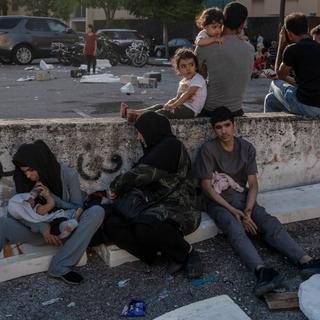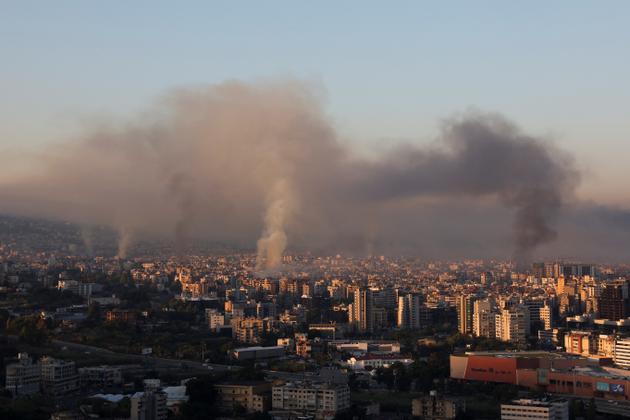


Israel strikes Hezbollah in heart of Beirut, claims it killed leader Hassan Nasrallah
NewsIsrael bombed the Shiite party's headquarters in the Lebanese capital on Friday evening and into Saturday morning, destroying several buildings.
A martial speech in New York and massive strikes in Beirut. In two almost simultaneous moves, Israel demonstrated on Friday, September 27 its determination to dismember Hezbollah in Lebanon, following the treatment inflicted on Hamas in Gaza. In front of the United Nations General Assembly, Benjamin Netanyahu closed the door on diplomacy, preferring the armed route, without restraint or compromise. Shortly afterward, the Lebanese capital was rocked by Israeli raids in the southern suburb of Dahieh. The strikes targeted Hezbollah's underground headquarters, destroying buildings above ground. On Saturday morning, the Israeli army claimed to have "eliminated" the leader of the Shiite militia, Hassan Nasrallah.
Hezbollah security men set up roadblocks around the site of the attack, allowing only bulldozers and rescue workers through. The site, located in the party-militia's heavily guarded "security square," was not known to everyone. At least six apartment buildings were destroyed and others damaged. Several craters were dug into the ground. The provisional toll, according to the Lebanese Ministry of Health, is six dead and 91 injured. This figure could rise considerably as rescue workers continue to search through the rubble.

Aged 64, Nasrallah was living in an undisclosed location. His death represents a historic blow to this organization, whose leadership was already decimated ten days ago. It is a further testament to the incredible quality of Israeli operational intelligence on Hezbollah, whose activities are essentially clandestine.
Israeli army spokesperson Rear Admiral Daniel Hagari said on Friday evening that the military was still looking into the results of its strike on Hezbollah’s headquarters. "We will update as soon as we know. Our strike was very accurate," he added. As of Saturday morning, Hezbollah has made no official announcement regarding the death of its leader.
The strike, felt over a radius of 30 kilometers, caused panic in the southern suburbs of Beirut. Thousands of Lebanese, as well as Syrian refugees, residents of Dahieh or those already displaced from the south of the country, abandoned their apartments to take shelter in Beirut's squares, parks and seafront. "The explosion took us by surprise. I lost my head a bit. We were really scared. We grabbed some bags, what we could carry, and walked for an hour to the Corniche with five children, including three little ones. Our relatives are about to join us. We're looking up to see if we can get back home," said a Syrian woman from Aleppo who lived near the site of the explosion.
You have 73.49% of this article left to read. The rest is for subscribers only.
